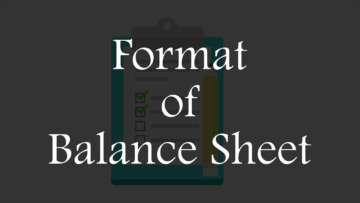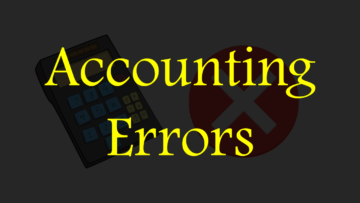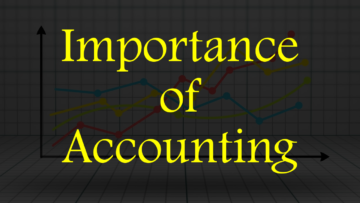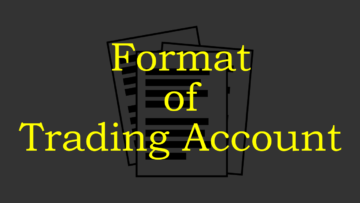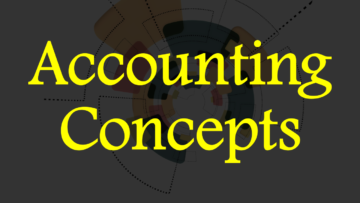Accounting is not an extraordinary term, it is a general term because it is used everywhere, wherever there is economic activity, accounting is automatically used. Accounting includes all economic activities like recording of transactions, processing of transactions, and outcome of transactions, etc.
Accounting is used everywhere in small business, big business and even in personal life. For example, where to take money, where to give money, how much money is to be given or taken to whom, how much profit or loss will be made by selling or buying something for how much, etc. all come under accounting. We keep using some of the above given examples sometimes in some way or the other, even if we do it unknowingly.

Table of Contents
What is Accounting?
Meaning of Accounting:
Accounting means managing economic transactions and includes identifying, measuring, recording, classifying, summarizing, analyzing, interpreting, and communicating economic transactions, etc. Accounting is one of the most important fundamental functions of management because every economic thing is evaluated and managed by numbers and numbers are directly related to accounting.
Small businesses or individuals do the accounting themselves or hire accountants, but big businesses or large-scale businesses create separate departments known as accounting departments and employ highly qualified individuals in them.
Definition of Accounting:
According to the Accounting Standards Council (ASC) – “Accounting is a service activity, and Its function is to provide quantitative information, primarily financial in nature, about economic entities, that is intended to be useful in making economic decisions.”
According to Bierman and Drebin – “Accounting may be defined as identifying, measuring, recording and communicating of financial information.”
According to Robert N. Anthony – “Accounting system is a means of collecting, summarizing, analyzing and reporting, in monetary terms the information about the business”.
According to Smith and Ashburn – “Accounting is the science of recording and classifying business transactions and events, primarily of a financial character, and the art of making significant summaries, analyses, and interpretations of those transactions and events and communicating the results to the persons who must make decisions or form judgments.”
Features of Accounting
Following are the features of accounting:
1. Economic Activity:
Accounting is an economic activity because it involves only economic transactions or monetary transactions. Economic activity means activity related to money or activity that can be converted into money. For example selling and purchasing of goods and services, making payments and receiving payments etc.
2. Process:
Accounting is a process of managing economic transactions and involves identifying, measuring, recording, classifying, summarizing, analyzing, interpreting and communicating economic transactions, etc.
3. Universal:
Accounting is universal because everyone uses it everywhere knowingly or unknowingly. For example, managing economic transactions like buying, selling, paying, receiving, calculating, saving etc.
4. Continuous:
The nature of accounting is continuous because it is not used only once, it is used continuously throughout the existence of the object. For example, accounting is used in business from its inception to its existence.
5. Evidential Value:
Accounting has evidentiary value because accounting is systematic, and it is valid before law. Another reason for its evidentiary value is that it is in written and organized form. For example, transactions, journal entry, ledger account, balance sheets, etc.
6. Flexible:
The nature of accounting is flexible as it varies according to the environment. The main reason for flexibility in accounting is internal and external policy, internal policy means self and external policy means outsiders like government or non-government but the fundamental principles do not change unless the environment affects the fundamental principle.
7. Forecasting:
Accounting helps in forecasting because accounting data is also used while forecasting. Forecasting without data is irrelevant because accurate forecasting cannot be done without using the ground.
Read Also:
QNA/FAQ
Q1. What is Accounting?
Ans: Accounting means managing economic transactions and includes identifying, measuring, recording, classifying, summarizing, analyzing, interpreting, and communicating economic transactions, etc.
Q2. Does accounting have evidentiary value?
Ans: Yes, Accounting has evidentiary value because accounting is systematic, and it is valid before law.
Q3. Is accounting an economic activity?
Ans: Yes, Accounting is an economic activity because it involves only economic transactions or monetary transactions.
Q4. Is accounting used universally?
Ans: Yes, Accounting is used universally because everyone knowingly or unknowingly uses it everywhere.
Q5. Write the features of accounting.
Ans: Following are the features of accounting:
1. Accounting is an economic activity.
2. Accounting is a process.
3. Accounting is universal.
4. Accounting is a continuous process.
5. Accounting has evidentiary value.
6. Accounting is flexible.
7. Accounting helps in forecasting.



